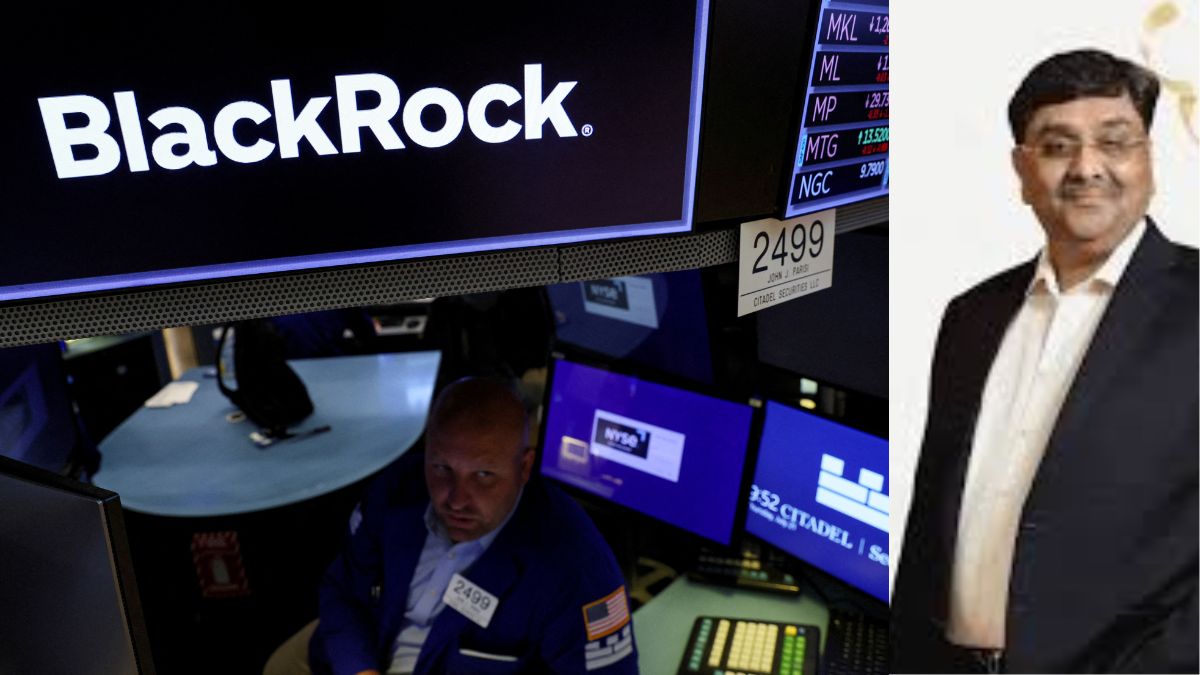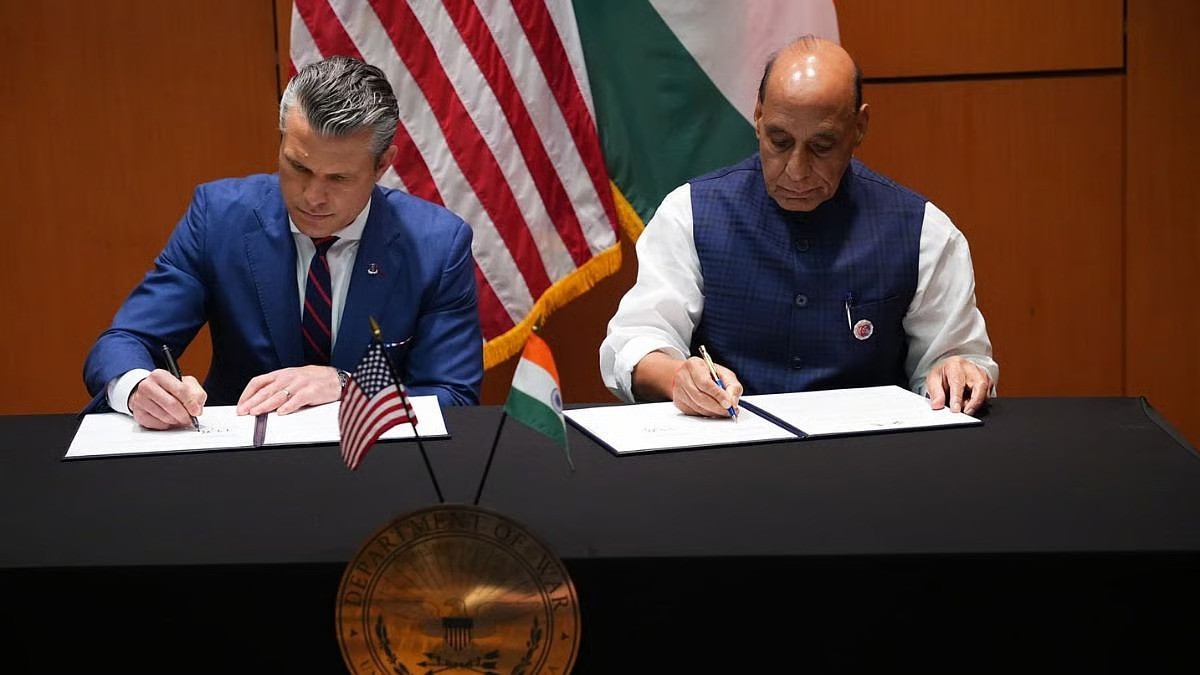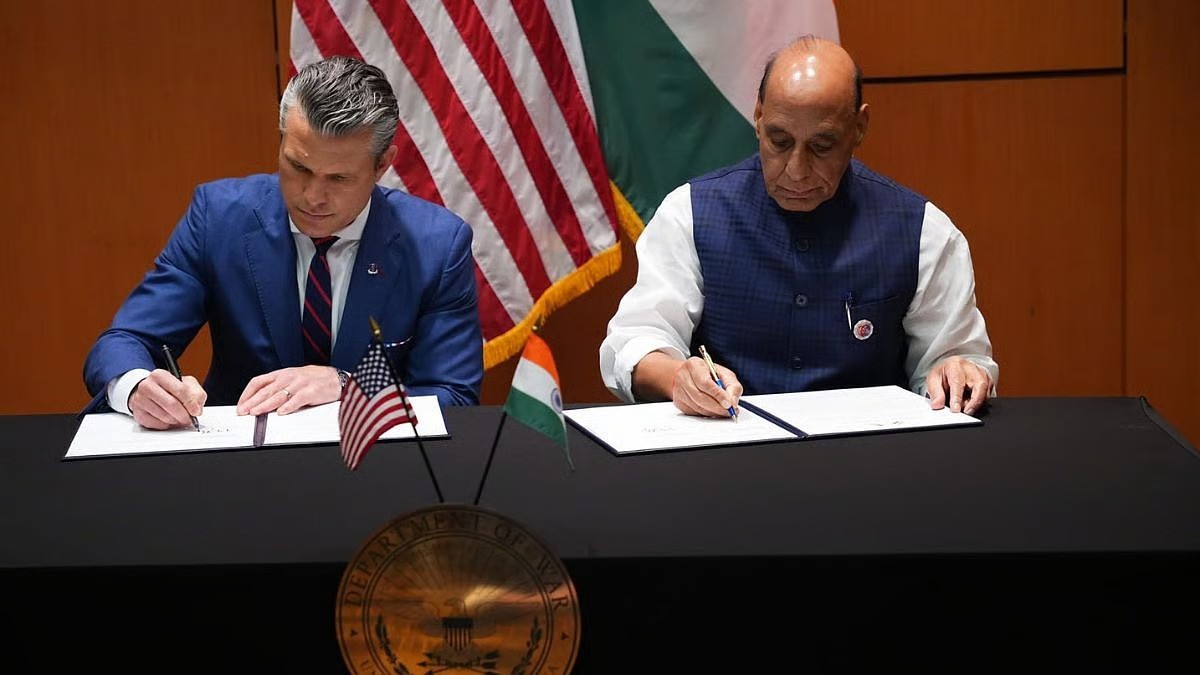Bankim Brahmbhatt, an Indian-origin telecom executive has been accused of defrauding lenders of more than $500 million in the United States.
The allegations, first revealed by the Wall Street Journal (WSJ) on Thursday, claim that Brahmbhatt orchestrated one of the largest loan frauds in the private-credit sector, using companies to secure loans against non-existent revenues and fake invoices.
The case has drawn attention because one of the world’s biggest financial institutions, BlackRock, was among the victims through its private-credit arm HPS Investment Partners.
How did the alleged fraud unfold?
According to the lawsuit filed in August, Brahmbhatt allegedly used his telecommunications companies — Broadband Telecom and Bridgevoice, both owned through the Bankai Group — to obtain hundreds of millions of dollars in loans from private-credit lenders led by HPS Investment Partners.
Through these firms, Brahmbhatt is said to have created fake customer accounts, falsified receivables, and forged contracts that were used as collateral to secure loans.
The WSJ report notes that his companies presented invoices that appeared to show legitimate payments due from global telecom operators.
However, when lenders later tried to verify these receivables, they discovered that many of the supposed customers either did not exist or had no relationship with Brahmbhatt’s businesses.
“Brahmbhatt created an elaborate balance sheet of assets that existed only on paper,” lawyers for the lenders wrote in their complaint.
Investigations cited in the WSJ report revealed that forged emails and fake customer correspondence had been fabricated over a period of years, with some documents dating back as far as 2018.
These materials were reportedly used to make the companies appear financially sound enough to qualify for large-scale financing.
Who has been financially exposed to the fraud?
The chain of lending began in September 2020, when HPS Investment Partners, then not yet acquired by BlackRock, extended its first line of credit to one of Brahmbhatt’s affiliated firms.
By early 2021, that exposure had grown to approximately $385 million, and by August 2024, it had reached around $430 million.
Impact Shorts
More ShortsAlmost half of these loans were financed by BNP Paribas, the French banking group, through two credit funds managed by HPS, according to individuals familiar with the transactions cited by WSJ.
The arrangement involved several interconnected entities controlled by Brahmbhatt, including Carriox Capital, Carriox Capital II, and BB Capital SPV, which were all part of a financing structure designed to attract capital from private-credit investors.
These firms allegedly acted as vehicles to move funds between Brahmbhatt’s various telecom-related companies.
The lawsuit alleges that Brahmbhatt and his firms misrepresented their receivables to obtain loans, and when questioned about discrepancies, he continued to provide false assurances to the lenders.
What did the investigation reveal?
The first signs of irregularity surfaced in July, when an HPS employee reportedly noticed inconsistencies in certain email communications that purportedly came from Carriox customers.
The anomalies led to further inquiries into the authenticity of the transactions.
When HPS officials reached out to Brahmbhatt for clarification, he allegedly reassured them that the discrepancies were minor and there was nothing to worry about.
However, soon after, he allegedly stopped responding to their calls and messages.
Alarmed by the silence, HPS staff visited his Garden City, New York office in July, only to find the premises locked and empty. Subsequent visits to the site over the following weeks yielded the same result.
When reporters and creditors attempted to contact him at his listed residential address in Garden City, there was again no response.
Two BMWs, a Porsche, a Tesla, and an Audi were reportedly parked in his driveway, with an unopened package left near the door, suggesting the property had been unattended for some time.
How did Brahmbhatt get away with the fraud?
After the alleged fraud came to light, several of Brahmbhatt’s entities sought Chapter 11 bankruptcy protection in the United States, including Broadband Telecom, Bridgevoice, Carriox Capital, and Carriox Capital II.
Under Chapter 11, companies are allowed to restructure their debts while continuing operations under court supervision.
Brahmbhatt himself filed for personal bankruptcy on August 12, 2025, the same day as his firms, declaring liabilities that collectively exceed half a billion dollars.
According to court filings, HPS Investment Partners and its associated lenders claim they were deceived into providing loans secured by “non-existent revenue streams” and “artificially created receivables.”
The plaintiffs have alleged that some funds from the loans were diverted to offshore accounts in India and Mauritius, further complicating recovery efforts.
Meanwhile, BNP Paribas, which financed nearly half of the total exposure through HPS-managed funds, has not issued any public comment about the case.
Who Is Bankim Brahmbhatt?
Despite the scale of his operations, very little verified information about Bankim Brahmbhatt is publicly available.
He has been identified in a July 2025 social media post as the President and CEO of Bankai Group, a telecommunications conglomerate headquartered in the United States with offices in multiple countries.
🎉 Wishing a Very Happy Birthday to Our President & CEO, Mr. Bankim Brahmbhatt!#Bankaigroup #BankimBrahmbhatt #HappyBirthday #CEO #Leadership #Inspiration #Gratitude #BusinessLeader #CelebrateLeadership pic.twitter.com/u42KwejEU8
— Bankai Group (@Bankai_Group) July 19, 2025
The Bankai Group describes itself as a “globally recognised leader in the telecommunications industry, cherishing telecom technology and carrier business fraternity with Telcos, Operators & more.”
Through its subsidiaries Broadband Telecom and Bridgevoice, the group claims to provide infrastructure, interconnectivity, and technology services to telecom operators across different regions.
Brahmbhatt’s professional background reportedly spans more than 30 years in the telecommunications sector, during which he has led companies engaged in carrier solutions, voice routing, and digital platform development.
However, his LinkedIn profile has now been deleted, and other online profiles linked to him have either been deactivated or made private following the public emergence of the case.
Where is he now?
According to sources cited by WSJ, officials at HPS Investment Partners suspect that Brahmbhatt may have left the United States for India sometime after July, when the discrepancies were first discovered.
His Garden City office remains closed, and the company’s phone numbers and email contacts have reportedly gone unanswered for months.
Neighbours told reporters that they had not seen any activity in the office building for several weeks before it was eventually vacated.
Despite speculation about his whereabouts, no official confirmation has been provided by law enforcement authorities, and no arrest has been publicly reported as of now.
Brahmbhatt’s legal counsel, however, has denied the accusations in full, describing the lawsuit’s claims as “unfounded.”
What does this mean for the private credit market?
The alleged fraud has put a spotlight on transparency and risk management in the rapidly expanding private-credit industry, which has grown into a multi-trillion-dollar global market over the past decade.
Unlike traditional bank loans, private-credit financing is often secured by receivables, projections, or other business assets that may not be thoroughly verified by third parties.
Financial experts cited in WSJ say that the Brahmbhatt case highlights the vulnerabilities of this system, especially as many lenders compete to offer large sums to mid-sized firms without traditional credit histories.
Recent collapses of firms such as First Brands and Tricolor, both accused of similar misuse of receivable-backed loans, have only amplified concerns about weak oversight in this sector.
For BlackRock, which completed its acquisition of HPS Investment Partners earlier this year, the case has proven an early test of its risk controls within private credit.
The firm is reportedly coordinating efforts to recover the missing funds and is evaluating its exposure to other similar loan structures.
What next?
A visit to Bankai Group’s New York premises revealed that the once-active headquarters appeared deserted.
The nameplates of Broadband Telecom and Bridgevoice remained at the entrance, but no staff or operations were visible. Nearby businesses confirmed that they had not seen employees enter the office for weeks.
While bankruptcy filings indicate that the companies are seeking to reorganise, the prospects of recovery for lenders appear uncertain.
Court documents show that many of the assets listed under the companies’ balance sheets have been deemed “unverifiable” or “non-existent.”
The lenders’ lawsuit accuses Brahmbhatt and his associated entities of deliberate misrepresentation, fraudulent inducement, and conversion of loan proceeds.
If proven, the charges could result in significant civil penalties and potential criminal proceedings under US financial laws.
However, no criminal indictment has been publicly announced so far.
The ongoing bankruptcy and recovery processes may take years to conclude, given the international elements of the case and the involvement of multiple financial jurisdictions.
The case has also triggered internal reviews at both BlackRock and BNP Paribas, as investors and regulators call for tighter controls over private-credit transactions, particularly those involving complex receivable financing structures.
Also Watch:
With inputs from agencies


)

)
)
)
)
)
)
)
)



